- TL:DR: My Preferred GoCardless Alternative
- 1. Melio
- 2. Stripe
- 3. PayPal
- 4. Square
- 5. QuickBooks Payments
- An Overall Synopsis of Each Platform
- Factors to Consider When Picking an Alternative to GoCardless
- Common Missteps I See Owners Make
- Other Items to Consider
- Why I often Find Myself Pushing for Melio as an Alternative to GoCardless
- Closing Thoughts
Last Updated on October 29, 2025 by Ewen Finser
Part of running a successful business means getting paid efficiently and reliably. Over the years, I’ve seen countless clients struggle with payment processing systems that are either too expensive, too rigid, or simply not aligned with the way they operate.
There are many platforms out there that can aid in Accounts Receivable, and GoCardless is a name that comes up occasionally, especially with businesses that rely on direct debit, but it isn’t the only option. In fact, in some cases, it’s not even close to the best fit.
As a CPA who works with a wide range of small business owners from construction subcontractors to retail shops and online startups, I’ve helped clients evaluate and switch payment platforms more times than I can count. And truth be told, it can get pretty frustrating watching my clients chase their tails, so I’ve outlined what my best picks are for GoCardLess alternatives so that you don’t have to make the same mistakes.
TL:DR: My Preferred GoCardless Alternative

After advising clients for years, I’ve found that Melio is often the most practical alternative for small U.S. businesses thanks to its free ACH transfers, credit card-to-check flexibility, and seamless QuickBooks sync. Still, Stripe, PayPal, Square, and QuickBooks Payments each excel in different niches, so the best choice depends on your cash flow needs, customer base, and accounting setup.
1. Melio
Melio has become a go-to solution for many of my clients, particularly those who want a simple, affordable way to send and receive payments without dealing with the complexity of traditional merchant accounts.
Why Melio Stands Out
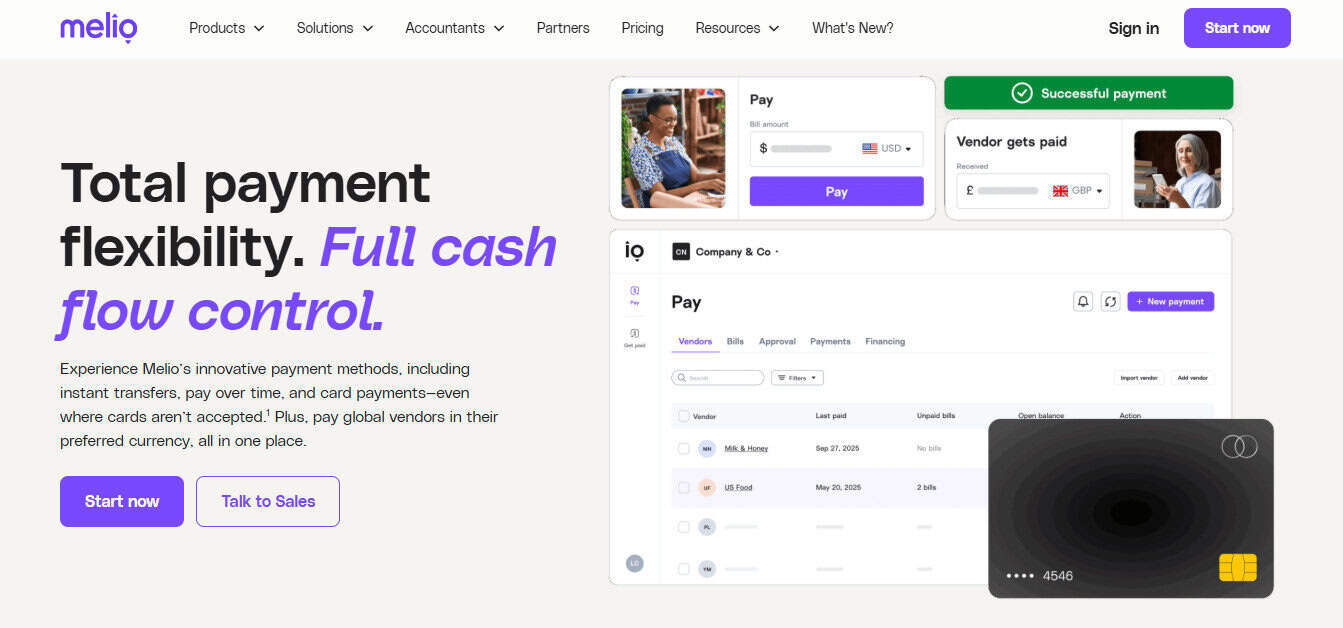
- Accounts Payable Made Easy: You can pay vendors by bank transfer for free, or by credit card for a small fee, even if the vendor doesn’t accept cards. I’ve seen clients use this to extend float on expenses by 30–45 days.
- Seamless Bookkeeping: It integrates with QuickBooks Online, and the sync is reliable. That’s a big deal for accountants like me who don’t want to \spend hours reconciling payments.
- No Hidden Costs: Many platforms layer in subscription costs, fees for different types of payments, etc, but Melio’s up-front pricing structure is refreshing.
I’ve had contractors use Melio to pay suppliers who would normally only take checks. Melio mails the check for them while charging the business card, which not only simplifies payments but also earns rewards points. It’s a small detail, but it makes a measurable difference over the course of a year, even if it costs a small bit extra.
Pros
- Free bank transfers
- Credit card option for vendor payments
- Strong QuickBooks and Xero integration
Cons
- Limited global payment options compared to GoCardless
- You’ll be charged a 2.9% fee for the option of using your business credit card
2. Stripe
Stripe is often the first name that comes up when someone mentions online payments, and for good reason. It’s developer-friendly, flexible, and widely used in the startup ecosystem.
From an accounting standpoint, Stripe has a lot of strengths. It integrates with almost every software tool, which means my clients rarely run into data silos. However, Stripe does come with some complexity. Its fee structure can be harder for business owners to understand, especially when you add in international payments, chargebacks, and add-on features.
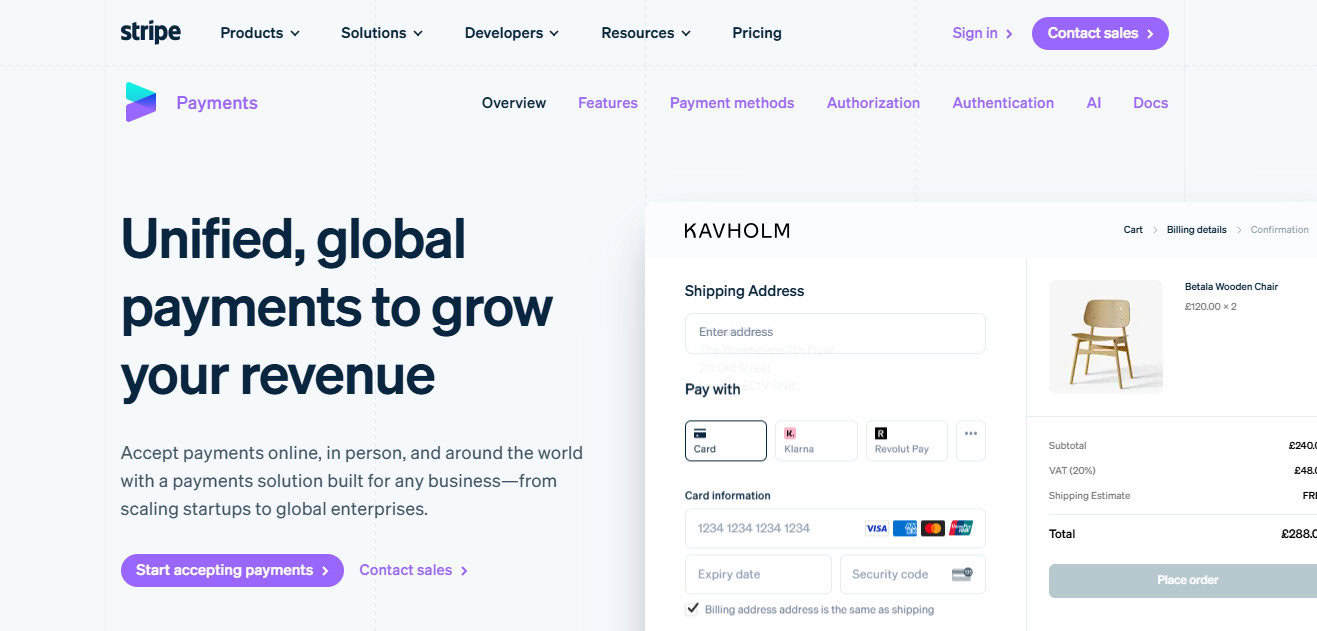
Key Features
- Supports credit card, ACH, and wallet payments
- Global reach with over 135 currencies
- Strong developer API for custom workflows
Where It Fits: Stripe works best for tech-savvy companies, SaaS platforms, or businesses with an international customer base. For a small retail shop or contractor, it’s absolutely overkill.
3. PayPal
PayPal is one of the most recognized names in online payments. It’s simple, it’s trusted by consumers, and it integrates everywhere. I’ve seen clients lean on PayPal when they want to get set up quickly without the headaches of a more complex merchant account.
That said, PayPal isn’t always the cheapest option. Their transaction fees can add up, and customer service isn’t as responsive as some of the newer players in the market. Still, for certain businesses, especially those that sell online, it can be a straightforward solution.
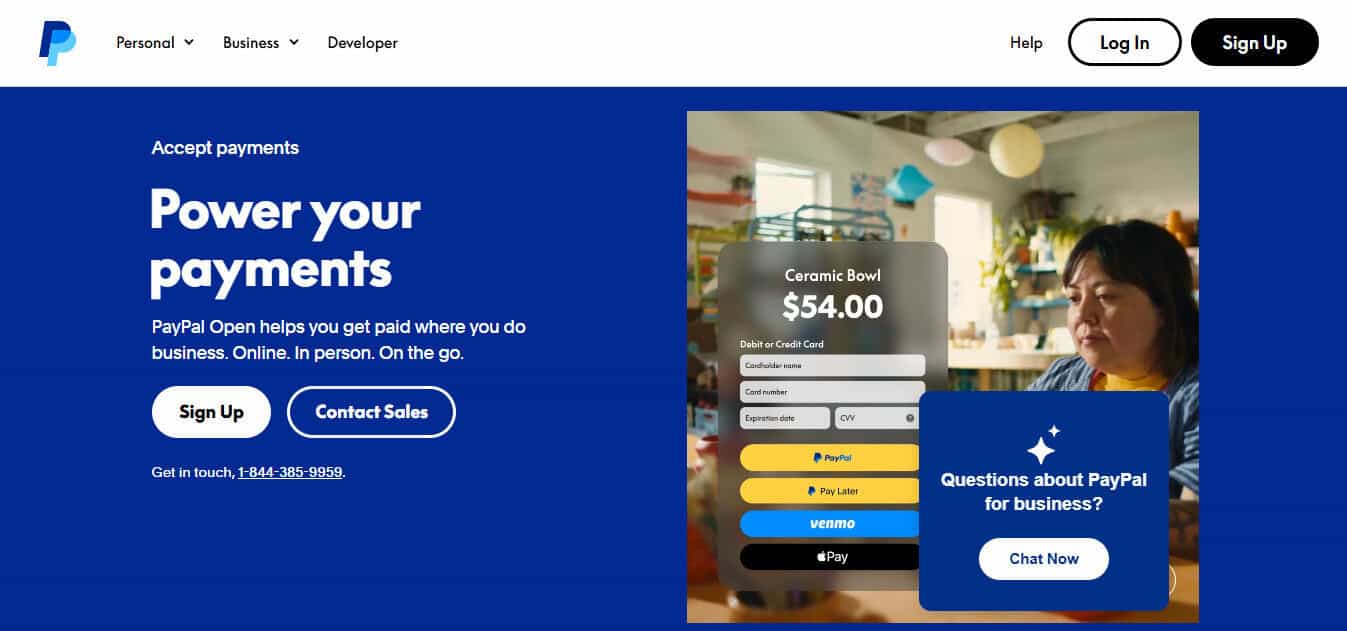
Pros
- Instant brand trust with customers – they know that PayPal is legitimate and safe
- Easy to set up and accept payments
- Built-in buyer and seller protection
Cons
- Higher fees, especially for cross-border transactions
- Funds can be held without notice, creating cash flow issues
- Paypal often favors the buyer in disputes
4. Square
Square started as a point-of-sale solution for small businesses, and it has grown into a full financial ecosystem. For businesses that have both online and in-person sales, Square is a very practical option, in my experience.
I’ve worked with restaurants, retail shops, and service providers that rely on Square not only for payments, but also for scheduling, payroll, and even loans. From an accountant’s perspective, I appreciate how well-rounded and robust the reporting is. It’s not perfect, but it covers the bases most owners care about.
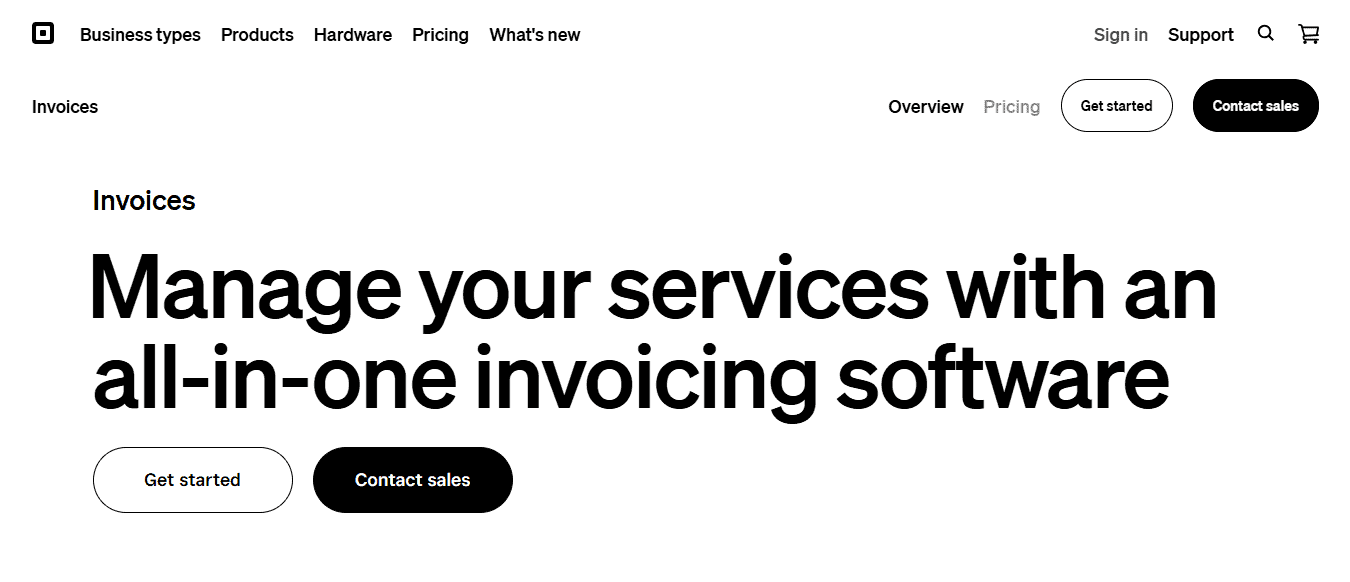
Key Features
- POS hardware and software
- Online payment links and invoices
- Payroll and employee management
Square isn’t the cheapest, but for businesses that want an all-in-one solution, it simplifies operations.
5. QuickBooks Payments
For businesses already using QuickBooks for accounting, QuickBooks Payments is a natural fit. It integrates seamlessly with invoices and books, reducing the need for manual entry or reconciliation.
I’ve noticed that many of my clients who are already embedded in the QuickBooks ecosystem prefer this option simply because it keeps everything in one place. The downside is that fees are higher than some competitors, and it’s not as flexible for businesses with more complex payment needs. You also can’t receive payments through this module, and will need to invoice via QBO.
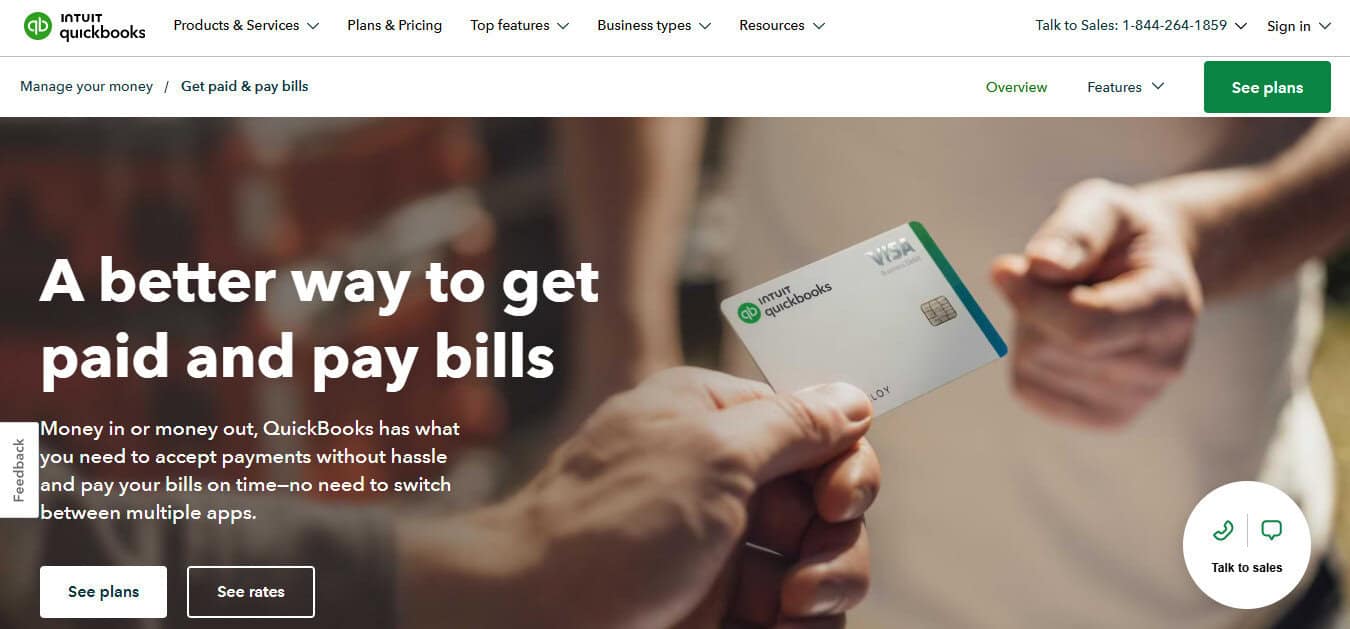
Pros
- Full integration with QuickBooks
- Easy for clients already familiar with the software
- Supports recurring payments
Cons
- Higher transaction fees than Melio or ACH-focused platforms
- Less flexible for non-QuickBooks users
An Overall Synopsis of Each Platform
Alright, I’ve told you about each platform in detail. Here’s how I think they stack up side by side and what each excels at compared to one another.
- Melio: Best for small businesses that want simple, low-cost vendor payments and tight accounting integration.
- Stripe: Best for tech companies and international businesses.
- PayPal: Best for quick setup and customer trust.
- Square: Best for blended online/offline businesses.
- QuickBooks Payments: Best for QuickBooks users who want everything in one place.
Factors to Consider When Picking an Alternative to GoCardless
I’ve noticed that businesses often tend to overlook the drivers that would lead them to pick the best platform for their businesses. Here’s what I typically ask the clients to consider:
- Cash Flow Needs: If you need to float expenses, platforms like Melio (with credit card to check functionality) can be game changers.
- Customer Base: Who are you selling to? International customers often point you toward Stripe. Local, walk-in customers might mean Square.
- Integration: If your books are in QuickBooks, QuickBooks Payments saves time, even if the fees are higher.
- Fee Structure: Don’t just compare percentages. Look at monthly costs, transaction minimums, chargeback fees, and currency conversion.
- Support & Reliability: This one is underrated. I’ve had clients deal with frozen PayPal accounts, and it nearly crippled their businesses. Always test customer service responsiveness before fully committing.
Common Missteps I See Owners Make
It’s not just about picking the “best” platform. It’s also about avoiding mistakes. Here are a few I see all the time:
- Chasing Brand Recognition: Many go straight to PayPal because it’s familiar, only to later regret the higher fees and account holds. I can’t tell you how frustrating it is to have funds frozen for 14 days because something was flagged as “suspicious”, and support can’t tell you what the issue is.
- Ignoring Accounting Integration: Manual entry might not seem like a big deal at first, but over time, it adds up. Choose a platform that talks to your accounting system.
- Overestimating Volume Discounts: Some businesses pick Stripe or Square, assuming their volume will unlock lower rates. In practice, most small businesses never hit those thresholds.
- Failing to Test Cash Flow Impact: A 2.9% fee doesn’t sound like much until you multiply it by six figures in annual revenue. I often run fee comparisons for clients so they see the long-term cost.
Other Items to Consider
Choosing an alternative to GoCardless depends on the size, structure, and goals of your business. For many of my clients, Melio has been the most balanced option as it’s straightforward, affordable, and keeps the accounting clean. That said, there’s no universal answer. Stripe, PayPal, Square, and QuickBooks Payments each bring unique strengths that fit different business models.
As a CPA, my advice is always the same: don’t just look at features. Run the numbers. Factor in your cash flow, your bookkeeping process, and your long-term growth plans. The right payment platform isn’t just about collecting money; it’s also about making sure that money flows into your business in a way that supports stability and growth.
When I sit down with a client, here’s what I look at:
- Transaction Volume and Type
- A high-ticket B2B company with few invoices is better off with free ACH solutions like Melio or GoCardless.
- A B2C retailer with hundreds of small transactions might value Square’s all-in-one ecosystem more.
- Customer Expectations
- If your customers expect PayPal checkout, ignoring it might cost you sales.
- If you’re billing corporate clients, the usually prefer bank transfers.
- Accounting Workload
- Every extra manual entry costs real time (and CPA fees).
- Platforms like Melio and QuickBooks Payments reduce this pain significantly since they integrate seamlessly.
- Risk Tolerance
- With PayPal, account freezes happen. For some, that’s acceptable. For others, it’s a deal-breaker.
- Stripe’s complexity can lead to mis-posted fees if not carefully reviewed.
Why I often Find Myself Pushing for Melio as an Alternative to GoCardless
I’ll be blunt: most of the small and mid-sized businesses I advise aren’t looking for bleeding-edge technology. They want three things:
- Predictable cash flow
- Easy accounting
- Minimal fees
Melio checks those boxes without the baggage. It doesn’t overcomplicate payments, and it gives business owners flexibility. Whether that’s paying a vendor with a credit card who only takes checks, or syncing directly with QuickBooks to cut down reconciliation time.
The key is that Melio works in the background. Clients often tell me they “barely think about it” and that’s what I’m after. The less time you spend stressing over your payment platform, the more time you have to run your business.
Closing Thoughts
GoCardless is still a solid solution, especially for recurring payments and subscription businesses. But it’s not the only option, and depending on your business model, it may not be the best option.
- If you’re in construction, services, or B2B: Melio often comes out ahead.
- If you’re running a SaaS platform or global eCommerce: Stripe is hard to beat.
- If you want a trusted name with consumers: PayPal is still relevant, though costly.
- If you need a retail ecosystem with POS and payroll: Square delivers.
- If you’re a QuickBooks shop through and through: QuickBooks Payments will make life easier.
As a CPA, my bottom line is simple: the best payment platform is the one that reduces friction both for getting paid and making payments. In that sense, Melio is often the quiet winner, not because it’s flashy, but because it solves the everyday problems that actually matter.

